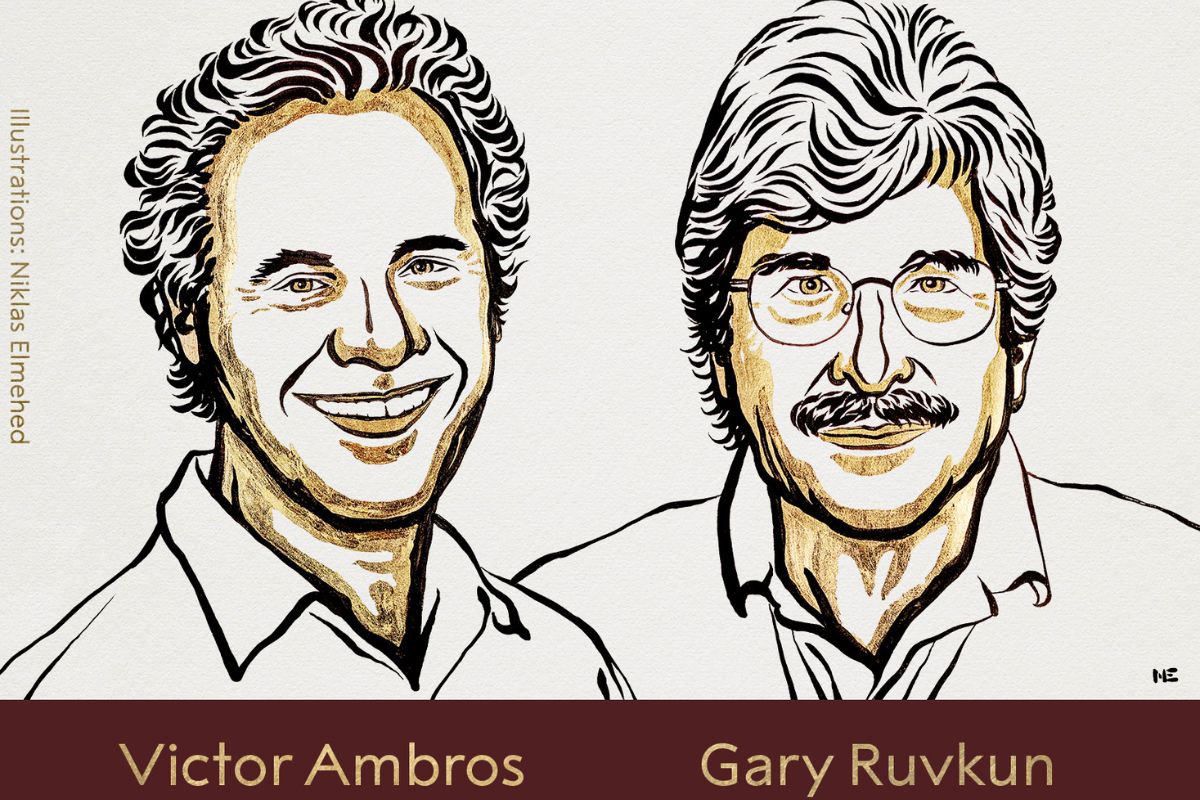This tiny but fundamental molecule has opened new avenues in biology, revolutionizing the way we now understand the mechanisms that govern the functioning of cells

@The Nobel Prize (X)
The Nobel Prize in Physiology or Medicine, 2024, has been jointly awarded to the American scientists Victor Ambros and Gary Ruvkun for their decisive contributions to the understanding of genetic regulation through the discovery of microRNA. This small but vital RNA molecule has managed to revolutionize biology by changing the way we understand the mechanisms that control cellular functions.
BREAKING NEWS
The 2024 #NobelPrize in Physiology or Medicine has been awarded to Victor Ambros and Gary Ruvkun for the discovery of microRNA and its role in post-transcriptional gene regulation. pic.twitter.com/rg3iuN6pgY— The Nobel Prize (@NobelPrize) October 7, 2024
Their finding, stemming from studies of the minute worm Caenorhabditis elegans, led to the uncovering of a genetic regulatory system that had not been known a couple of decades earlier. And yet, for such a small molecule as microRNA, it can suppress the expression of any gene and hence is of utmost importance in coordinating development and function in complex organisms, including humans.
MicroRNAs: what and why are they so important?
Now, to put into significant context the implication of this discovery, let’s take a step back and see what microRNAs are. These are small RNA molecules, 20 to 25 nucleotides in length, that do not code for proteins but regulate gene expression by binding to messenger RNA (mRNA), thereby preventing mRNA from being translated into proteins. This is one critical way many cellular events are controlled, including embryonic development, cell differentiation, and programmed cell death or apoptosis.
In other words, microRNAs act just like “genetic switches“, turning some genes on or others off, depending on the needs of the organism. Thanks to this finding, we now appreciate that microRNAs are key regulators of fundamental processes in many organisms and their dysfunction has been implicated in diseases ranging from cancer and neurodegenerative disorders.
A discovery rooted in a tiny worm
The quest by Ambros and Ruvkun to uncover microRNA began within C. elegans biology labs-the microscopic worm. Because of its simplicity and short reproducing period, this creature has been among the most widely used models in genetics. It was here that the scientists noticed a rather peculiar phenomenon: some cells seemed to “silence” the expression of certain genes.
Going deeper into their observation, Ambros and Ruvkun realized that such genetic regulation was mediated by hitherto unknown small RNA molecules-microRNAs. This discovery overthrew the classical notion of RNA playing a merely passive role in carrying genetic information. Instead, microRNAs emerged as energetic players in regulating cellular life.
Importance of the discovery and its consequences
Its discovery further marked a milestone in molecular biology, increasing our knowledge about how living organisms regulate their genetic processes. Today, microRNAs are studied in everything from developmental biology to cancer medicine, due to their ability to modulate gene expression and their promise as therapeutic targets in many diseases.
For example, dysfunctional microRNAs have been involved in the pathogenesis of a variety of cancers, opening new perspectives for the elaboration of specific therapies that could lead to the recovery of the function of these molecules, resulting in the inhibition or retardation of tumors.
Nobel Prize week
The Nobel Prize in Medicine awarded to Ambros and Ruvkun represents the first recognition in a week that celebrates the world’s leading scientists and thinkers across several fields. The highly regarded award for Medicine was given by the Nobel Assembly at the Karolinska Institute in Stockholm, which decides each year on the most important discoveries in physiology and medicine.
This Nobel, in Medicine, will be followed, throughout the week, by the prizes for Physics, Chemistry, Literature, Peace, and last but not least the Prize in Economic Sciences, closing it next Monday.
Medicine Nobel 2023: link with the past
Interesting to notice how the discoveries of 2024 are strictly linked to those of 2023, when the Nobel in Medicine was assigned to Katalin Karikò and Drew Weissman for their work about mRNA-a critical molecule in developing COVID-19 vaccines.
Whereas mRNA was crucial in fighting the pandemic, microRNAs are now equally important in our understanding of the regulation of genes and for possible treatments of chronic and serious diseases.
Source: Nobel Prize
